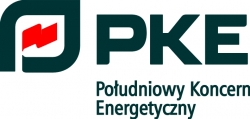
Workshop Summary
Less carbon intensive power generation, security of supply and emission abatement are of extreme importance in the fight against climate change. Clean coal technologies and renewable energies are in the future set to play an increasingly important role in the provision of energy for society. Cleaning of coal power generation depends on a combination of factors, most importantly the efficiency of conversion to power and the reduction of specific emissions, particularly of CO2 and other global warming gases. The substitution of coal with biomass will contribute to reduced fossil emissions. Maximum utilization of waste heat for the power generation process will further cut emissions in the provision of heat and hot water to industry and houses. This workshop addressed the range of technical challenges to be met on the road to a clean coal future.
Co-firing with biomass is widely practiced in the EU and experiences in the NL were described (Cieplik) as an example of different options adopted by the power generation sector to cut fossil emissions. Co-firing up to 25% (energy base) with biomass has been successfully tested. The efficiency or coal-fired power plants is the subject of a new report from the IEA Clean Coal Centre (Adams) and the main points contained in the report were summarized, with particular attention focused on methods for increasing efficiency. The Polish supercritical coal power plant research programme is one component of the drive for increased efficiency in one of Europe’s major users of coal (Kalisz).
Presentations were made on range of technologies involved in carbon capture and storage (CCS). These included an overview of oxyfuel combustion (Gokalp) and a review of materials issues in oxyfuel combustion systems (Simms) where flue gas chemistry has a significantly impact on corrosion and fouling than in traditional air-blown (pulverized) combustion systems. Post-combustion capture from pulverised coal flue gas steams was described from both an industrial perspective (Haj-Bolouri) and from a research perspective (Kennedy) with a main emphasis on recent investigations into mineral carbonation. There were two presentations on gasification combined cycle power generation (IGCC), one very much research oriented (Garcia Peña) with the research carried out on the commercial-scale Puertellano IGCC plant in Spain that has been in operation for about 10 years, the other on operating experiences of the Buggenum IGCC plant in the Netherlands that are being used in the design of the new “Magnum” CCS plant (Berkhout), also in the Netherlands. Design and process considerations for future IGCC plants with co-production of hydrogen and electricity and carbon dioxide capture were also described followed detailed engineering studies (Cormos). The specific subject of polygeneration was described with respect to a prospective plant in Poland (Uliniarz). Regarding storage of carbon dioxide, the experiences of SINTEF in Norway’s world-leading technology development and demonstration projects for underground storage were reported (Hetland).
The presentations focusing on power plant technologies were complemented by presentations on coal characterization methodologies (Paluska) and radio-carbon measurement in flue gas emissions (Pawlyta).
A description of the scope of European legislation and continuously developing policy on clean coal and CCS were described, focusing in particular on the latest measures to support demonstration of CCS by 2015 (Musella).
Based on an established collaboration between the European Commission’s Joint Research Centre, Institute for Energy and the Silesian University of Technology, Institute of Power Engineering and Turbomachinery to address certain aspects of cleaner power generation from fossil fuels, this workshop was planned. The intention was to bring together experts from a broad range of topics covering clean coal and CCS and to extend networking possibilities for future collaboration.
The workshop concluded with a technical visit to the new Lagisza circulating fluidised bed (CFB) power plant, the world premiere of supercritical CFB technology.
Sylwester Kalisz - sylwester.kalisz@polsl.pl
Manuela Musella - manuela.musella@jrc.nl
David Baxter - david.baxter@jrc.nl
Workshop schedule
1st day (24 September 2009)
- 08.00–09.00 – registration
- 09.00–13.00 – morning session
- 13.00–14.00 – lunch
- 14.00–18.00 – afternoon session
- 20.00 – official dinner / Chata Polaka
2nd day (25 September 2009)
- 09.00–13.00 – visit to Lagisza supercritical CFB power plant
- 13.00–14.00 – lunch / U Skarbowców
 Co-organizer:
Co-organizer: The Silesian University of Technology
European Programmes Office
Akademicka 2 A St.
44-100 Gliwice, POLAND
e-mail rpk@polsl.pl
fax +48 32 237 24 50






